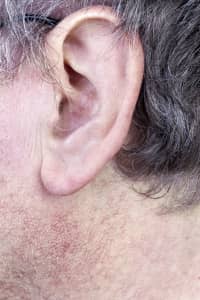
The NHANES is an ongoing epidemiologic study designed to assess the health of the US population using representative samples. In their analytical study conducted from March 1 to May 1, 2015, authors Kevin Contrera, MPH and MD candidate, Josh Betz, MS, Dane J. Genther, MD, and Frank R. Lin, MD, PhD, found that in adults 70 years or older, moderate or more severe hearing impairment was associated with a 54% increased risk of mortality.
According to the JAMA article, hearing impairment (HI) is common in older adults, and its prevalence doubles with every decade of life, affecting two-thirds of adults older than 70 years. For their analysis, the authors looked at data related to an association between hearing impairment and mortality in select populations. They specifically investigated the association of hearing impairment and all-cause mortality in a nationally representative sample of adults in the United States.
Using combined data from cycles of the NHANES that ran from January 1, 2005 to December 31, 2010, the authors studied 1,666 adults 70 years or older who had undergone audiometric testing. The NHANES protocol was reviewed and approved by the National Center for Health Statistic’s Institutional Review Board and informed written consent was obtained from all participants.
The authors defined the severity of hearing impairment per the World Health Organization criteria, based on the pure-tone average of hearing thresholds (in decibels) at speech frequencies (0.5-4 kHz) in the ear with better hearing. The authors report that mortality was determined by probabilistic matching between NHANES data and death certificates from the National Death Index through December 31, 2011.
Their findings suggest that older adults with impaired hearing may have a shorter life span than their peers without hearing problems.
Experts commenting on these findings in other media articles stressed that the findings, while interesting, do not necessarily prove that hearing impairment itself shortens people’s lives.
Source: Amy Norton, HealthDay; US News & World Report; The JAMA Network; WebMD; Johns Hopkins University School of Medicine
Original citation: Contrera KJ, Betz J, Genther DJ, Lin FR. Association of Hearing Impairment and Mortality in the National Health and Nutrition Examination Survey. JAMA Otolaryngol Head Neck Surg. Published online September 24, 2015. doi:10.1001/jamaoto.2015.1762
Photo credit: © Aleksandr Volkov | Dreamstime.com





